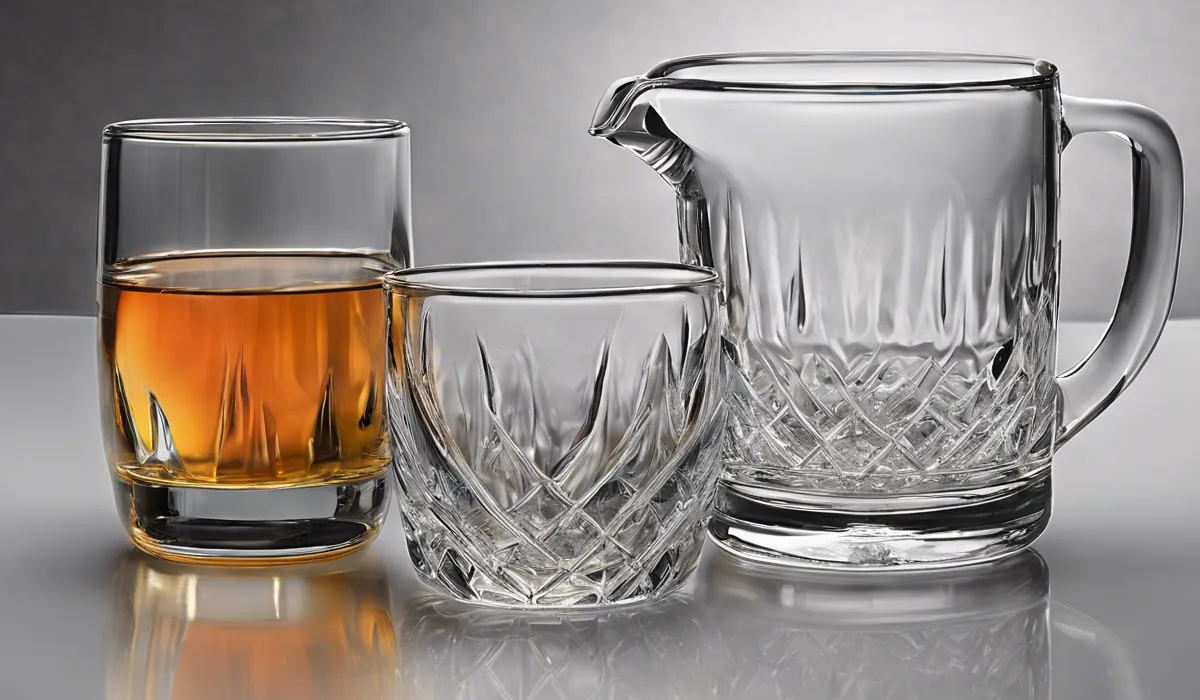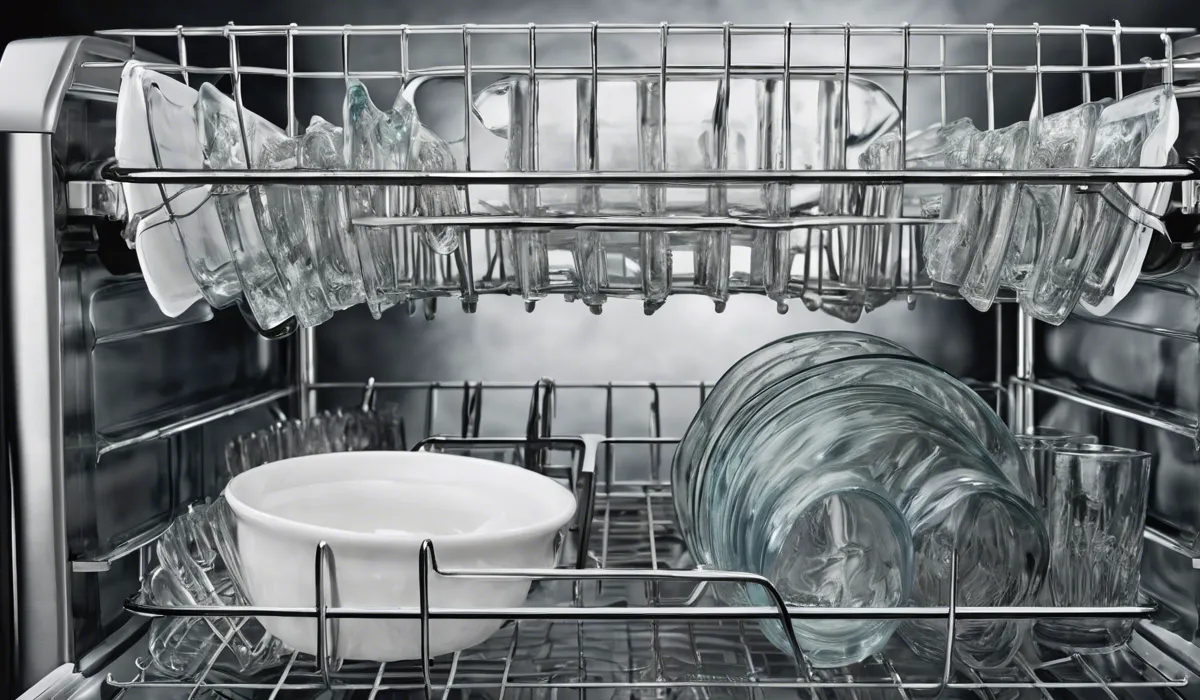Is Glass Dishwasher Safe? Unveiling the Surprising Truth!
Most glassware is dishwasher safe, yet certain types like crystal or hand-blown glass may not be. Check the manufacturer’s instructions or for a dishwasher-safe symbol to confirm. Avoid high-temperature settings and place delicate items on the top rack to prevent damage.
Understanding Glassware and Dishwasher Safety

Different Types of Glass Materials
Glass comes in various types, each with unique properties and uses. Tempered glass is strengthened through thermal processes, making it more resistant to breaking.
Borosilicate glass can withstand high temperatures without cracking, commonly found in lab equipment and cookware.
Soda-lime glass is the most prevalent type, used in windows and bottles, while crystal is a decorative option that often contains lead. Knowing the type of glass you have is vital for determining if it is dishwasher safe.
Impact of Heat and Detergent on Glass
Heat and detergent in dishwashers can affect glass in different ways. High temperatures can cause some glass to crack, while harsh detergents may dull or damage the surface.
It is important to understand how your dishwasher operates and the kind of detergent it uses to ensure the safety of your glassware during the cleaning process.
Thermal Shock Resistance in Glassware
Thermal shock resistance is a measure of how well glass can handle sudden changes in temperature.
Items like borosilicate glass have high thermal shock resistance and are less likely to break when exposed to temperature swings, such as those experienced during a dishwasher cycle.
Manufacturer’s Instructions and Symbols for Dishwasher Safety
Always look for the manufacturer’s instructions or symbols indicating dishwasher safety.
These symbols, which are usually found on the bottom of the glassware, can help you quickly determine if an item can be cleaned in a dishwasher. Ignoring these instructions may lead to damaged glassware.
Factors That Determine Dishwasher Safety for Glass

Thickness and Quality of the Glass
The thickness and quality of the glass can greatly influence its ability to withstand a dishwasher’s environment. Thicker, high-quality glass tends to be more durable and dishwasher safe, while thinner, low-quality glass may be prone to breaking or cracking.
Presence of Decorations
Glassware with decorations such as paint, gold leaf, or etching require special care. These decorative elements can be damaged or removed by dishwasher detergents and heat. Hand washing is often recommended for these delicate items.
Age and Condition of the Glassware
Older glassware or items that have already endured wear and tear may not be suitable for the dishwasher. Over time, glass can become brittle and more susceptible to damage, particularly in the harsh conditions of a dishwasher.
Dishwasher’s Settings and Detergents Used
The type of detergent and the chosen settings on your dishwasher can affect whether your glassware remains safe during the cleaning process. Gentle cycles and mild detergents are best for preserving glassware in the long run.
Placement and Spacing in the Dishwasher
How you place and space your glassware in the dishwasher is crucial. Proper placement can prevent items from knocking into each other and potentially breaking during the cycle.
Ensure there is enough space between pieces of glassware to avoid damage.
Best Practices for Washing Glass in the Dishwasher

Pre-rinsing and Checking for Dishwasher-Safe Labels
Before placing glassware in the dishwasher, pre-rinse to remove any large particles and check for dishwasher-safe labels to avoid potential damage. This simple step can save your glassware from unnecessary wear.
Positioning Glassware for Optimal Cleaning and Safety
Positioning glassware correctly in the dishwasher ensures both optimal cleaning and safety.
Glasses should be placed upside down on the top rack to avoid water pooling, and delicate stemware should be secured to prevent movement during the wash cycle.
Selecting the Right Dishwasher Cycle and Temperature
Choosing the correct dishwasher cycle and temperature is essential for maintaining the integrity of your glassware. Lower temperatures and gentle cycles are ideal for glass to avoid thermal shock and potential damage.
Tips for Preventing Cloudiness, Etching, and Breakage
To prevent cloudiness and etching, use appropriate amounts of a mild detergent and consider adding a rinse aid to the cycle. To avoid breakage, ensure that glassware is not touching other items and that the dishwasher is not overloaded.
Alternatives to Dishwasher Cleaning for Non-Safe Glass Items
For glass items that are not dishwasher safe, hand washing with warm, soapy water is the best alternative. Use a soft sponge or cloth to gently clean the items to maintain their condition and appearance.
FAQs About Dishwasher Safe Glass
Is all glassware safe to put in the dishwasher?
Most glassware is dishwasher safe, but some types like crystal or hand-blown glass may require hand washing. Always check the manufacturer’s instructions or look for a dishwasher-safe symbol.
How can I tell if my glassware is dishwasher safe?
Check for a dishwasher-safe symbol on the bottom of the glassware or consult the manufacturer’s instructions to confirm if it is safe for dishwasher use.
Can delicate glass items be washed in the dishwasher?
Delicate glass items can often be washed in the dishwasher if placed on the top rack and not subjected to high-temperature settings. However, refer to the manufacturer’s recommendations to be sure.
What settings should I use when washing glass in the dishwasher?
Avoid high-temperature settings when washing glass in the dishwasher, and consider using a gentle cycle. Place delicate items on the top rack to minimize the risk of damage.
Can washing glass in the dishwasher cause damage?
Washing glass in the dishwasher can potentially cause damage if the items are not dishwasher safe or if they are exposed to high temperatures or improper loading. Always follow the specific care instructions for your glassware.
Final Thoughts
Most glassware can be cleaned in the dishwasher, but special types such as crystal or hand-blown pieces require extra care. Always verify dishwasher safety by consulting the manufacturer’s guidelines or looking for a specific symbol.
To protect delicate items, refrain from using high-temperature wash settings and arrange them on the top rack of the dishwasher.





